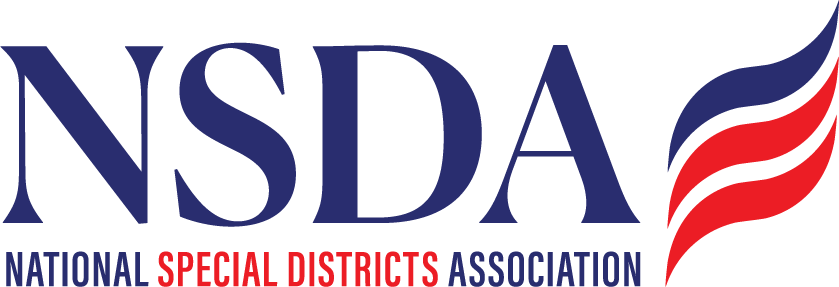NSDC Weekly Updates: July 9, 2024
House and Senate Action
Both chambers returned to action today following the Independence Day holiday. This week, the House will consider legislation (H.J. Res. 165) that would overturn the Biden administration’s Title IX rule, which expands discrimination protections for pregnant, transgender, and non-binary students. The chamber will also take up a bill (H.R. 7637; H.R. 7700) that would prohibit the Department of Energy (DOE) from prescribing or enforcing energy efficiency standards for refrigerators and dishwashers that are not cost effective or technologically feasible. In addition, lawmakers will vote on a measure (H.R. 8281) that would require individuals to provide proof of U.S. citizenship in order to register to vote in federal elections. Finally, lawmakers will consider the fiscal year 2025 spending bill covering the Legislative Branch. The full legislative calendar can be accessed here.
The Senate is expected to focus on nominations. The Senate schedule is available here
The House and Senate will recess again next week to allow GOP lawmakers to attend the Republican National Convention in Milwaukee, Wisconsin.
Special District Grant Accessibility Act – Senate Introduction Expected This Week
Later this week, Senators Kyrsten Sinema (I-AZ) and John Cornyn (R-TX) are expected to introduce the Special District Grant Accessibility Act (SDGAA). The bill, which was approved by the full House back on May 5th, would establish a first-ever, formal definition of “special district” in federal law. In addition to codifying such a definition, the legislation would require the White House Office of Management and Budget to issue guidance to federal agencies requiring special districts to be recognized as local governments for the purpose of federal financial assistance determinations.
One of the leading factors driving the need for the SDGAA is the fact that special districts were omitted in COVID-19-era legislation that provided direct federal financial assistance to local governments for coronavirus relief and response activities (namely CARES Act funding and ARPA Fiscal Recovery Fund dollars). Unlike other forms of local government, special districts were excluded from receiving direct federal aid despite the fact that many special districts provided essential public services throughout the COVID-19 pandemic, including ambulance/EMS, hospital, and open space services. Moreover, while special districts are eligible for the vast majority of current federal funding opportunities, they are ineligible for - or face barriers to accessing - certain grant programs. The SDGAA seeks to level the playing field by ensuring that special districts have access to all appropriate and relevant federal funding streams.
Looking ahead, the bill will need to be considered by the Senate Homeland Security and Governmental Affairs Committee. If favorably approved by the committee, the legislation would advance to the floor of the Senate.
Biden Administration Lays Out Regulatory Blueprint for the Remainder of the Year
On July 5, the Biden administration released its regulatory blueprint for the remainder of the year and beyond. The spring Unified Agenda, as it is known, outlines the federal regulatory priorities and plans for the coming months. Among other things, the White House intends to propose initiatives to modernize infrastructure, improve transportation safety, and promote sustainable development. This includes regulations related to public transit, aviation, and the development of smart cities. There will also be an emphasis on regulations aimed at reducing greenhouse gas emissions, promoting clean energy, and protecting natural resources. This includes stricter emissions standards for vehicles and industrial sources, as well as initiatives to address pollution and improve air and water quality. On the healthcare front, the administration will continue efforts to improve the affordability of prescription drugs and enhance public health preparedness. This includes regulations related to the Affordable Care Act, mental health parity, and responses to the opioid crisis. The full list of anticipated proposals can be accessed here.
Relevant Hearings and Markups
House Appropriations Committee: This week, the full committee will consider six (of 12) fiscal year 2025 spending bills. The measures scheduled to be considered include: Commerce-Justice-Science; Interior-Environment; Energy and Water; Labor-Health and Human Services; Transportation-Housing and Urban Development; and, Agriculture-Rural Development. More details on the committee activity can be accessed here.
House Natural Resources Committee: On Tuesday afternoon, the Subcommittee on Water, Wildlife and Fisheries will hold a legislative hearing on four measures, including a bill (H.R. 7544) that would forbid the Departments of the Interior and Agriculture from mandating water users transfer water rights to the federal government as a condition of any permit, lease, or other use agreement. It also would prevent any unlawful seizures of groundwater. More information on the hearing can be accessed here.
House Oversight and Accountability Committee: On Wednesday morning, the full committee will meet to conduct oversight of the U.S. Environmental Protection Agency (EPA). More details on the hearing will become available here.
House Agriculture Committee: On Wednesday afternoon, the panel will meet for a hearing entitled, “Examining the Consequences of EPA’s Actions on American Agriculture.” A livestream of the hearing will be available here, beginning at 2pm ET.
Senate Agriculture, Nutrition, and Forestry Committee: On Wednesday afternoon, the Subcommittee on Rural Development and Energy will hold a hearing on the state of rural infrastructure in the United States, with a particular focus on emergency response, recovery, and resilience. Blue Earth (MN) County Commissioner Kevin Paap is among those slated to testify. Additional information on the hearing, including a full witness list, is available here.
Senate Appropriations Committee: On Thursday morning, the committee will consider the first three (of 12) fiscal year 2025 spending bills, including those covering the Legislative Branch; Agriculture, and Military Construction-Veterans Affairs. The panel will also vote on the funding allocations for each of the 12 subcommittees. More details on the markup can be found here.
